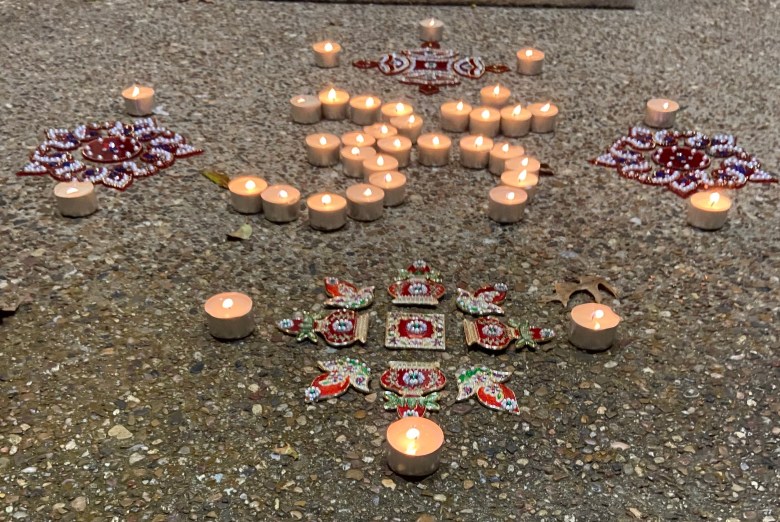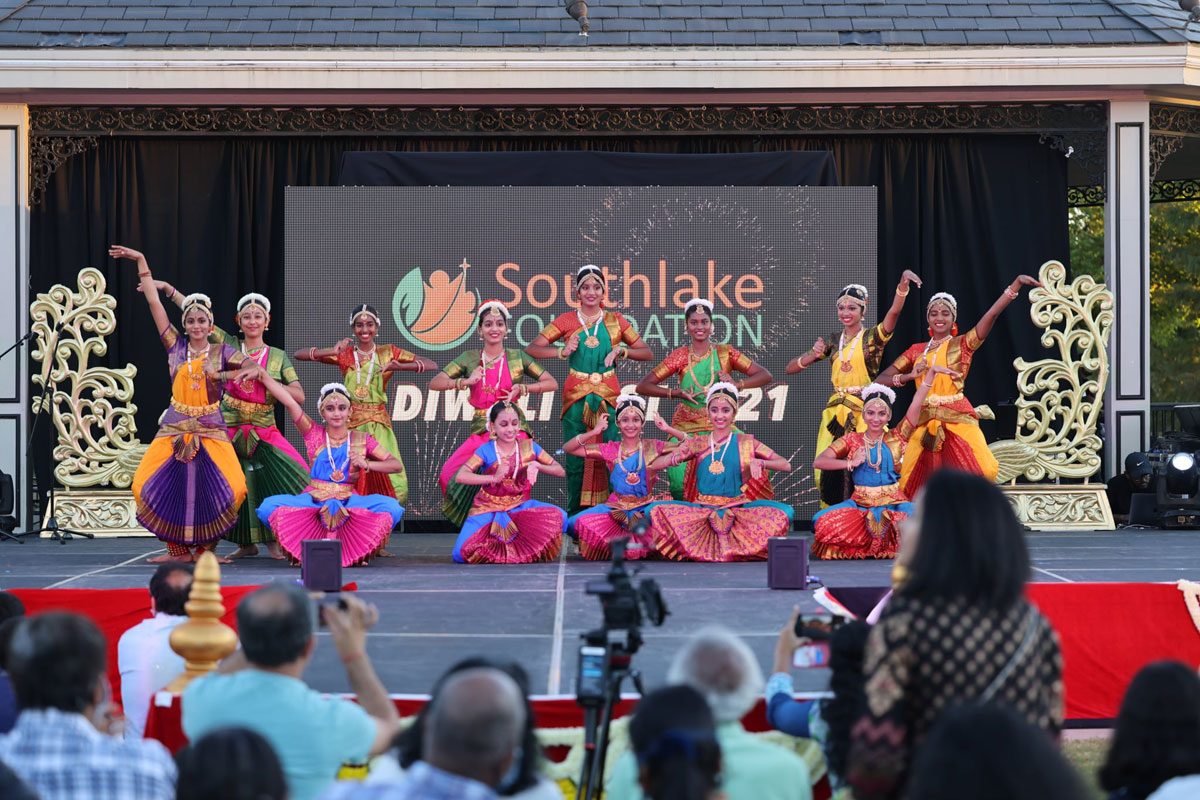One of Iva Mishra’s fondest memories celebrating Diwali is the way her family would bring light into their Colleyville home.
Mishra, a Hindu who was born in India and came to America when she was about 7, said her family would turn on all the lights in their home and illuminate the house they cleaned in preparation for one of the most important holidays celebrated by Hindus, Sikhs, Jains and Buddhists across Tarrant County and around the world.
On the outside, when her two sons were young, the boys would decorate their house with clay lamps called diyas and tea light candles along with tiny lights in the shape of the sacred Om symbol by the front door.
“We leave them on for quite a long time, because that’s also bringing out the darkness and bringing in the light into the home,” Mishra said, referring to the lights inside their home. “My kids are older now, but they used to love to do that.”
The tea light displays still remain a family tradition, she said.
 Colleyville resident Iva Mishra recalls times her two sons would shape tea light candles in the sacred Om symbol by the front door for Diwali. (Courtesy photo | Iva Mishra)
Colleyville resident Iva Mishra recalls times her two sons would shape tea light candles in the sacred Om symbol by the front door for Diwali. (Courtesy photo | Iva Mishra)
A clean home. New clothes. Delicious sweet and savory Indian dishes. Spending time with friends and family. Praying at the temple. These are just some of the elements that make up Diwali, Mishra said.
The exact meaning of the holiday can vary among religions and cultures. Generally, the holiday symbolizes good over evil or light over darkness. During the holiday, Hindus worship Lakshmi, a deity in Hinduism known as the goddess of wealth, prosperity and fortune.
The holiday follows a lunar calendar and occurs every fall between October and November. This year, Diwali begins on Oct. 18 and continues through Oct. 23, according to The Old Farmer’s Almanac.
The main day of the festival takes place during a new moon, when the sky is at its darkest. The Indian government marked Oct. 20 as the day to celebrate Diwali in 2025.
It is commonly known as the festival of lights or Deepavali, which translates to “row of lights” in Sanskrit. During Diwali, participants light candles and diyas to light up the night sky. Those lights symbolize Lakshmi, said Antoinette DeNapoli, a professor of South Asian religions at Texas Christian University.
Diwali builds on the momentum of the fall equinox and Navratri, the festival of nine nights. Starting Sept. 22, Hindus dedicated rituals to goddess Durga and her victorious nine-day battle against the buffalo demon, Mahishasura, according to Religion News Service.
“There have been these sort of cosmic battles of good over evil and at the end of that cosmic battle, you have this great goddess Lakshmi, who just offers her blessings to the universe,” DeNapoli said. “Diwali is the culmination of a festival that celebrates the victory of goodness over evil, or truth over falsity, or knowledge over ignorance.”
DiwaliFest in Southlake: What to know if you go
What: Southlake DiwaliFest
When: Oct. 25
Where: Southlake Town Square, 285 Grand Ave., Southlake
The public displays of Diwali typically involve a vibrant celebration of culture, food and community. There’s also small, private moments inside homes where families observing Diwali devote time to worship deities “beloved in their families that are part of their family lineages” in addition to Lakshmi, DeNapoli said.
It is a time for families, even those who are not going out for the day, to dress in their finest clothes, often outfits and jewelry reserved for Diwali. They cook a mouthwatering deep-fried flatbread called puri served with a chickpea curry called chole bhature.
These elevated rituals are a significant part of Diwali because “you’re inviting a premier guest into your house. You’re inviting the goddess herself,” DeNapoli said.
Time spent in preparation of the festivities and rituals, particularly among the women, is what makes Diwali special, DeNapoli said. Although they are performing mundane activities — such as cooking or sweeping the floor — daughters, mothers and grandmothers celebrate doing them together.
The camaraderie, friendships and even gossip that is shared between women, and the bonds forged through those very exchanges — that’s also a part of Diwali, DeNapoli added.
“These practices, the clothes, the food, they’re associated with these affective experiences, these emotional experiences, and that’s what fuels the memories,” DeNapoli said. “That’s what fuels the associations that make people so joyful for these festivals, year after year after year.”
Marissa Greene is a Report for America corps member, covering faith for the Fort Worth Report. You can contact her at marissa.greene@fortworthreport.org.
At the Fort Worth Report, news decisions are made independently of our board members and financial supporters. Read more about our editorial independence policy here.
Related
Fort Worth Report is certified by the Journalism Trust Initiative for adhering to standards for ethical journalism.
Republish This Story
Republishing is free for noncommercial entities. Commercial entities are prohibited without a licensing agreement. Contact us for details.

